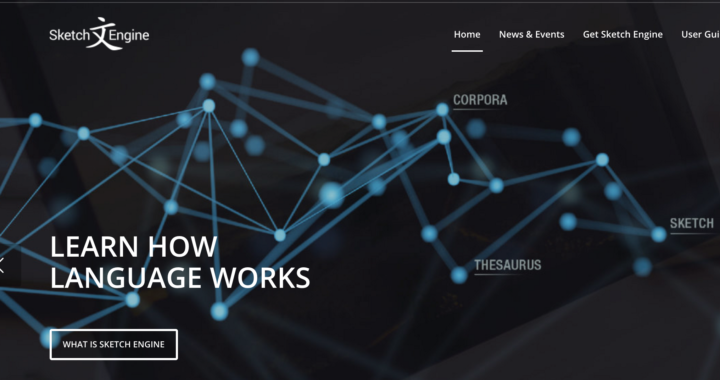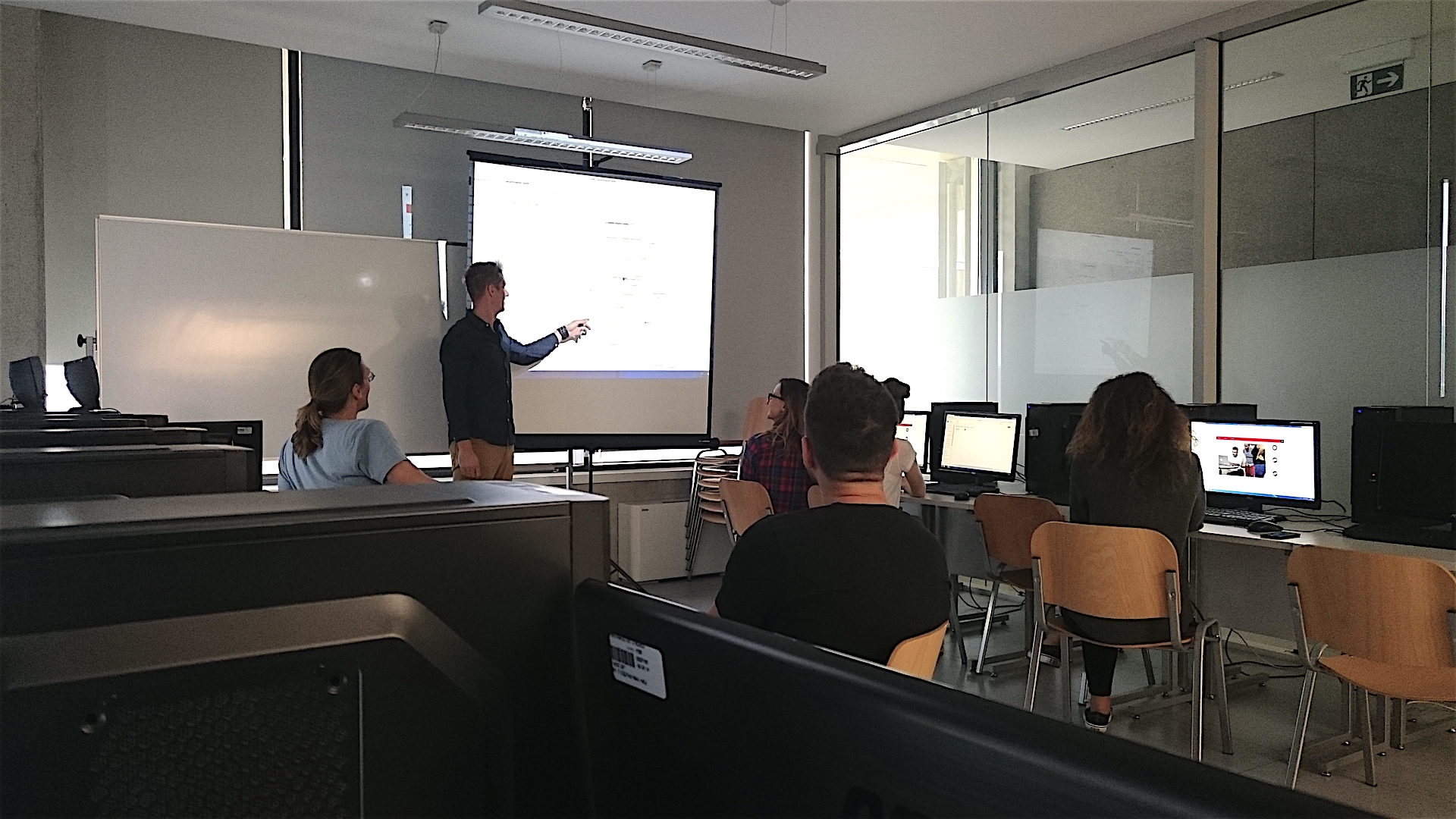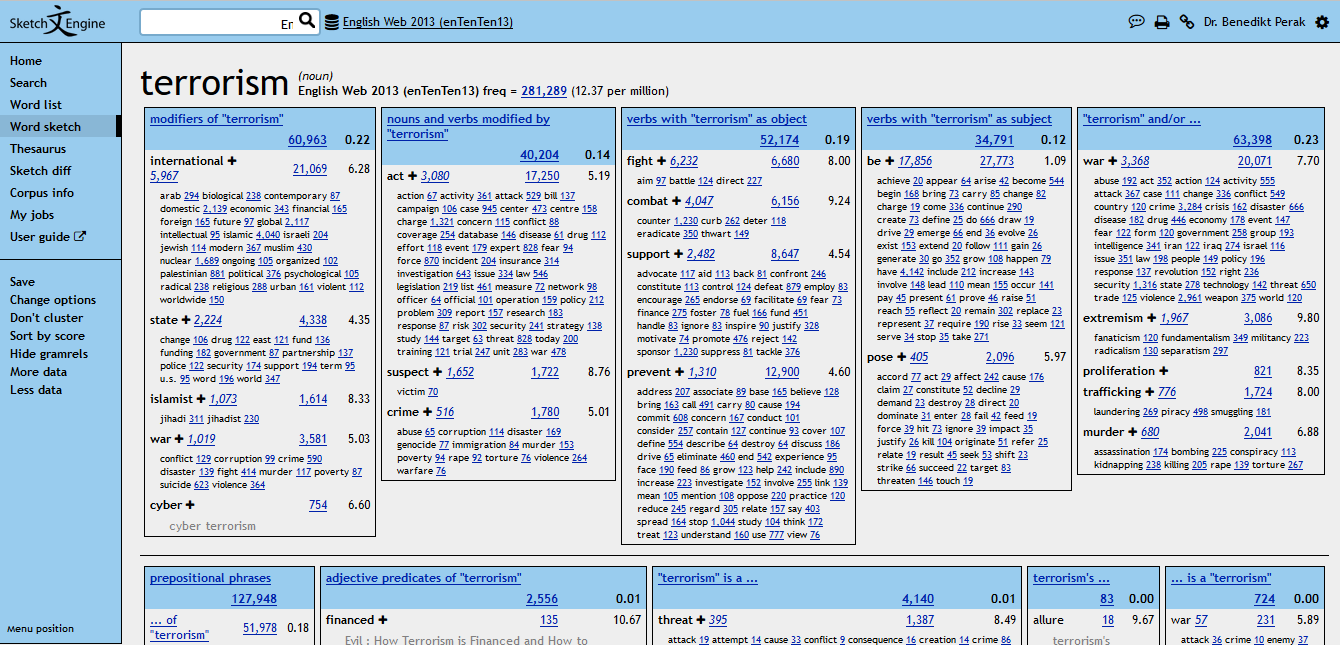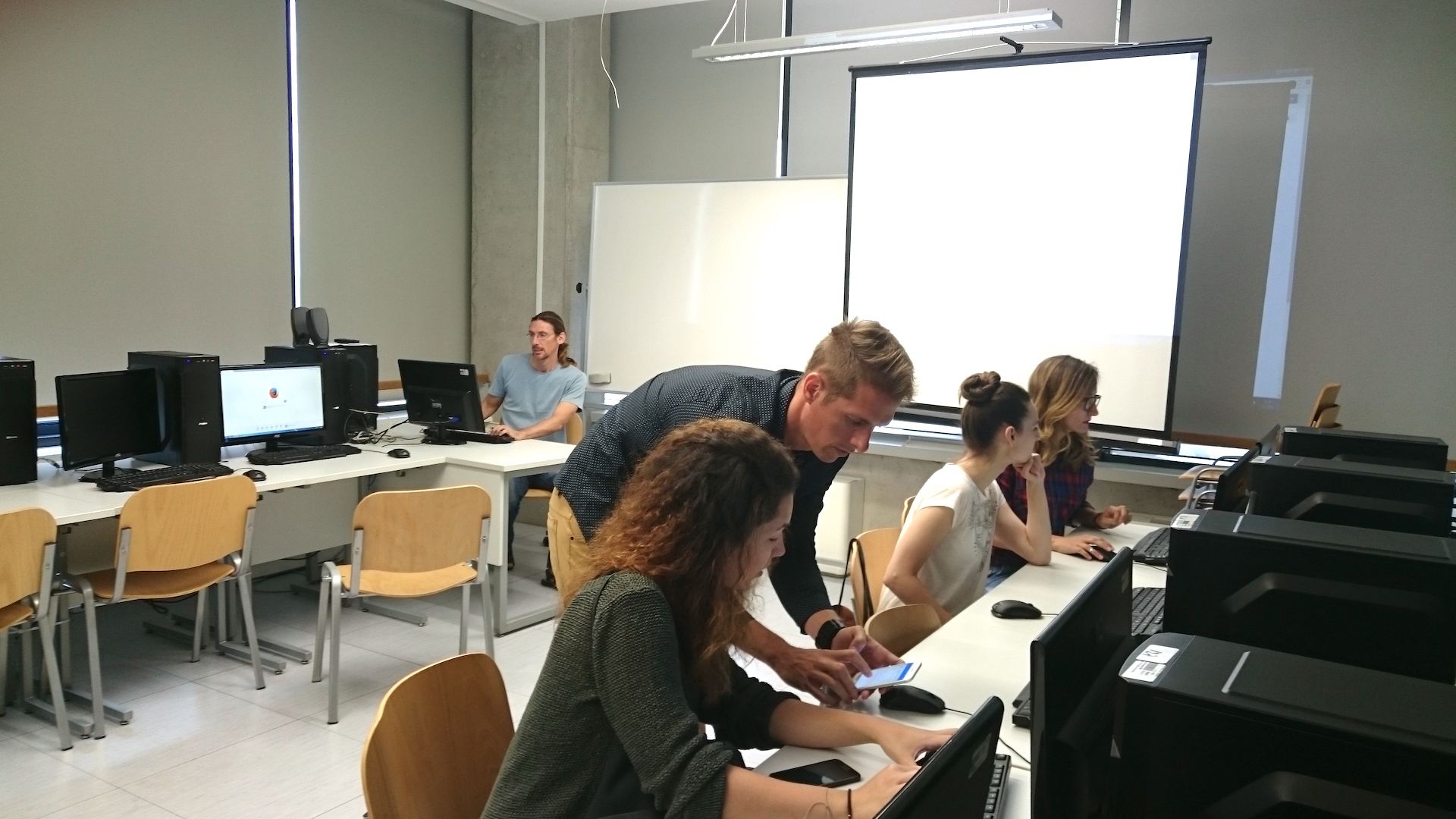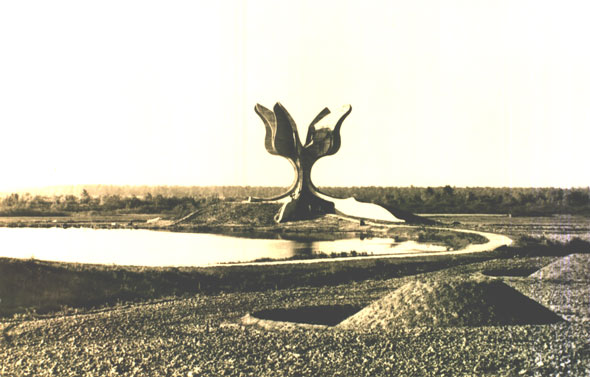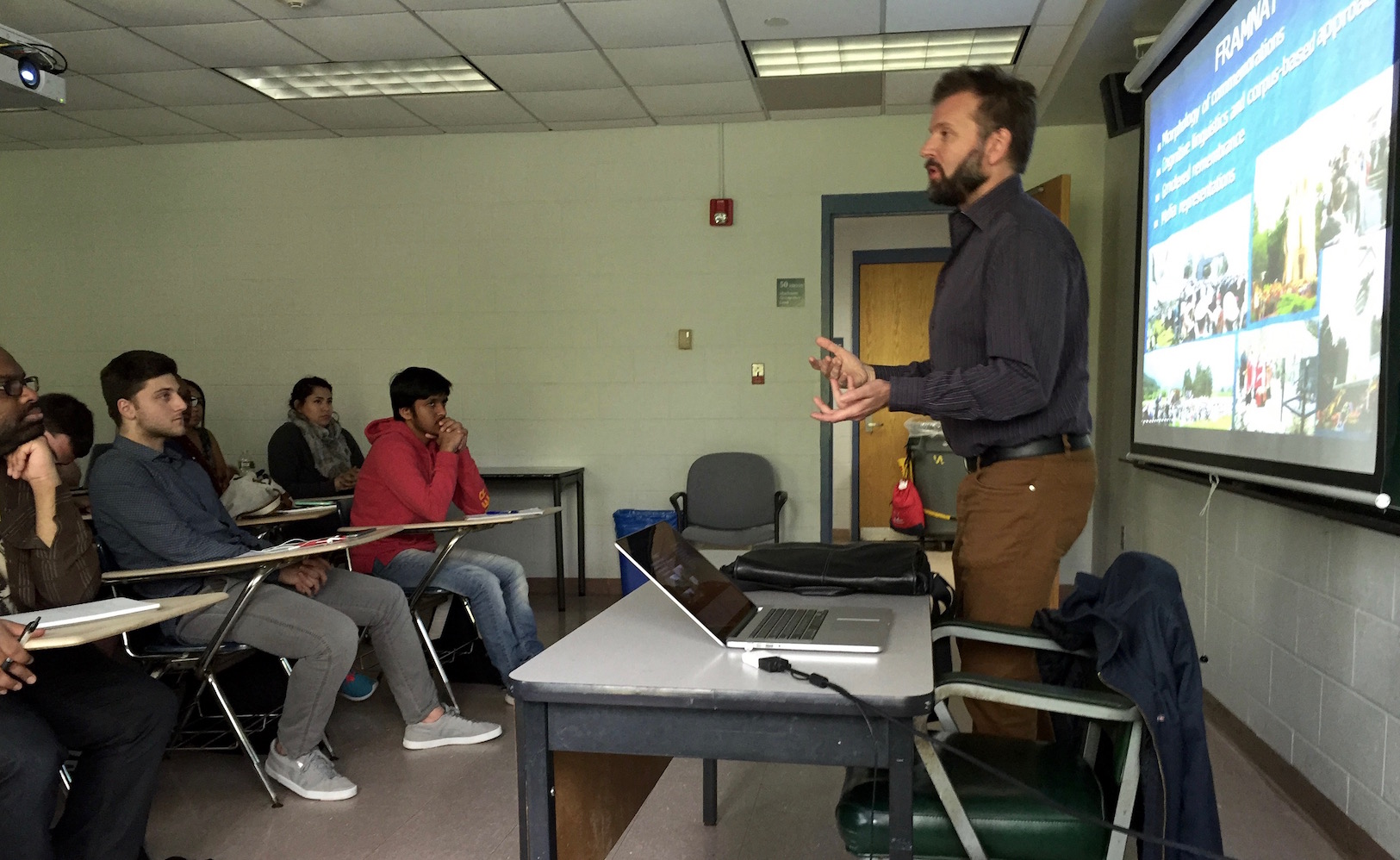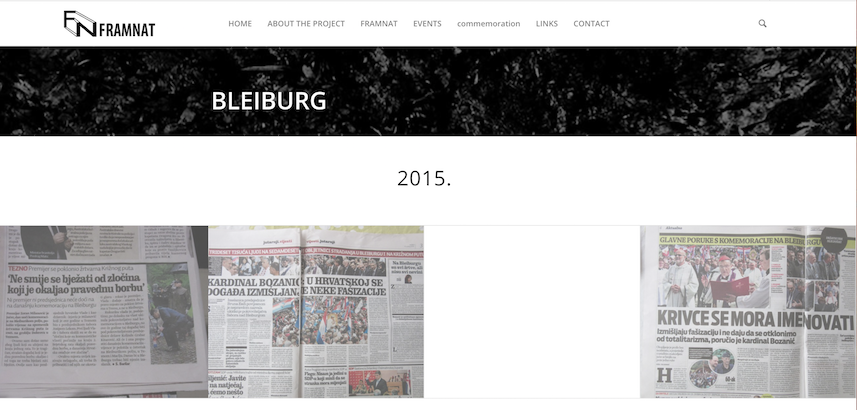Dr. Arnaud Kurze (standing), Montclair State University, conducting a workshop on digital methods at the University of Rijeka, Croatia.
On July 15, 2016, Dr. Arnaud Kurze, Assistant Professor of Justice Studies at Montclair State University, held a workshop on digital methods in post-conflict and post-authoritarian contexts at the University of Rijeka, Croatia. Participants were all part of a thriving initiative at the university’s Cultural Studies Department, which promotes digital research in the humanities. The aim of this workshop was to explore new ways of analyzing qualitative data and to provide digital tools for visualizing research findings.
The event was initiated by the former Chair of the Cultural Studies Department, Dr. Vjeran Pavlakovic, and provided an excellent platform for a transatlantic knowledge exchange and a thought-provoking scholarly discussion on recent trends in this emerging field. One of Dr. Kurze’s colleague from Rijeka, Dr. Benedikt Perak, for instance, shared some insights on his latest research, which he presented earlier this summer in Berlin, Germany, and Vienna, Austria. Dr. Perak has created a virtual ontology that looks at different discursive patterns, linking language, culture and behavior. His preliminary findings can be viewed on a web portal hosted by the University of Rijeka, which was created with Gephi. In addition, drawing from an open-source language software called SketchEngine, Dr. Perak was able to build and adjust his discursive and emotion-based ontology.
Using SketchEngine to retrace the roots and linguistic as well as cultural usage of the term terrorism.
A short lecture by Dr. Kurze on the open-source text analysis software SVEN for Dr. Perak’s research was thus crucial and very timely. While SVEN currently only processes data based roman-based languages and English, different database projects are underway to include slavic-based languages for future text analyses. One of them is called the ReLDI project, to collect and distribute various linguistic data and tools to support empirical research in Croatian and Serbian. It is an institutional collaboration including research centers in Croatia, Serbia and Switzerland.
ReLDI logo and website.
The Rijeka workshop was a great opportunity for researchers to explore a common ground for future research collaboration and exchange programs. With both universities in Montclair and Rijeka pushing for curricula to harness students with valuable tools and analytical skills, workshop organizers vowed to strengthen institutional ties and develop potential future coursework and guest lectures between the two digital humanities poles.
Croatian participants at a workshop on digital methods at the University of Rijeka, Croatia.
